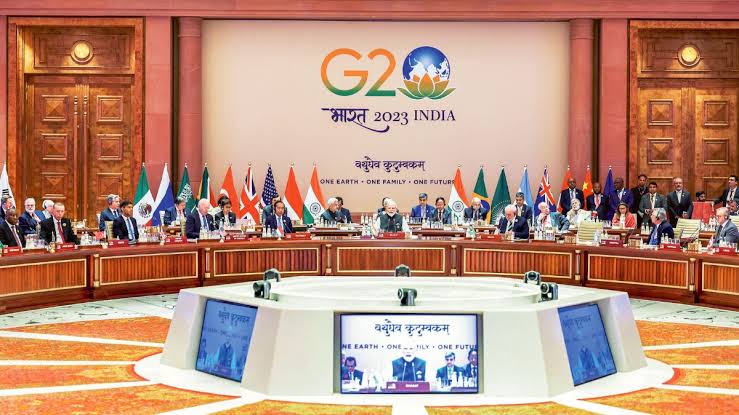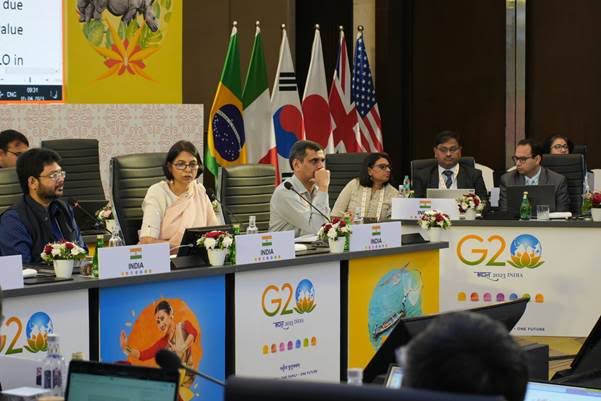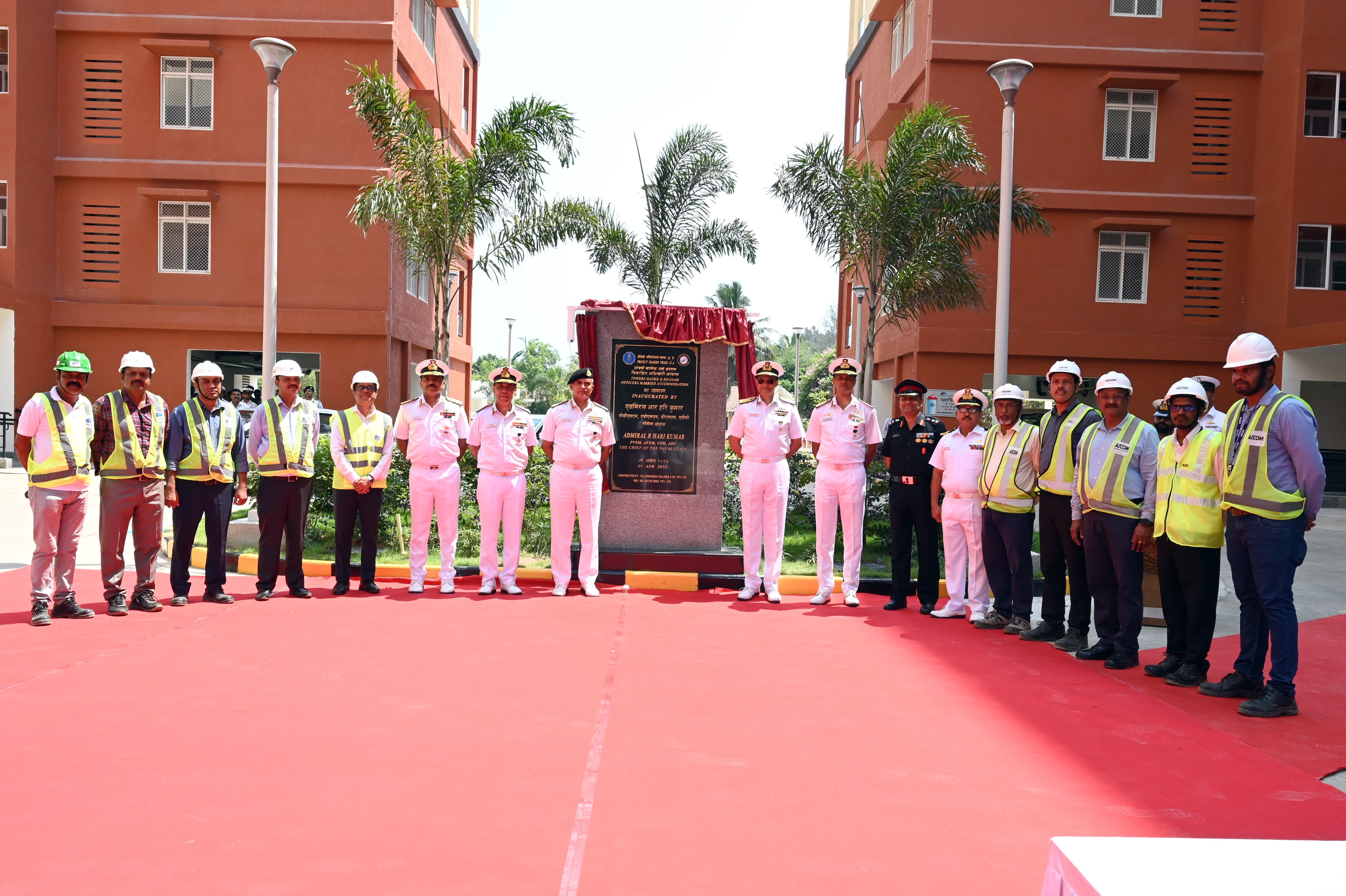India reaffirmed its commitment to economic inclusion and employment growth at the first G20 Employment Working Group (EWG) meeting under South Africa’s presidency, held in Port Elizabeth from February 18-21, 2025. The Indian delegation, led by Ms. Sumita Dawra, Secretary of the Ministry of Labour and Employment, engaged in discussions focused on fostering youth employment, inclusive labour markets, and expanding social security in the digital age.
 Representatives from G20 nations, along with invited member states such as the UAE, the Netherlands, and Norway, shared their strategies for employment growth and labour market reforms. The International Labour Organization (ILO) and the Organisation for Economic Cooperation and Development (OECD) also contributed insights on global employment trends and best practices.
Representatives from G20 nations, along with invited member states such as the UAE, the Netherlands, and Norway, shared their strategies for employment growth and labour market reforms. The International Labour Organization (ILO) and the Organisation for Economic Cooperation and Development (OECD) also contributed insights on global employment trends and best practices.
India’s intervention highlighted major reforms aimed at job creation, labour market flexibility, and strengthening social security. As the fastest-growing major economy, India has been focusing on strategic investments in agriculture, MSMEs, manufacturing, medical education, and infrastructure development. Special attention has been given to enhancing global supply chains and boosting export-driven employment by improving warehousing and air cargo facilities.
The discussions underscored India’s improving employment trends, with the unemployment rate declining from 6% in 2017-18 to 3.2% in 2023-24. The Labour Force Participation Rate (LFPR) and Worker Population Ratio have also seen significant growth. The introduction of four Labour Codes has modernized the labour market, expanding protections for gig and platform workers, formalizing employment, and increasing female workforce participation.
Social security expansion has been another area of progress. Coverage has doubled from 24.4% in 2021 to 48.8% in 2024, according to the ILO’s World Social Protection Report 2024-26. With further enhancements, India’s coverage is expected to rise even more. The success of the e-Shram portal, which has registered over 300 million unorganized workers, along with the modernization of the Employees’ State Insurance Corporation (ESIC) and Employees’ Provident Fund Organisation (EPFO), was highlighted as a significant step toward inclusive welfare.
Gender inclusion remained a key focus, with India aiming for 70% female workforce participation by 2047. Policies such as extended maternity leave, crèche facilities, and equal pay initiatives have supported this goal. Women’s growing participation in IT, R&D, and engineering was noted as a crucial driver of economic progress.
India also stressed the importance of youth empowerment through skill development. Employability rates among graduates have risen from 34% to 55% over the last decade. India’s global engagement in skill mapping with organizations like the ILO and OECD, along with bilateral agreements facilitating skilled labour mobility with G20 nations, has further strengthened employment prospects.
Through its active participation in the G20 EWG discussions, India reiterated its dedication to inclusive economic growth, job creation, and ensuring a strong future for its workforce, particularly the youth. The country remains committed to shaping policies that enhance opportunities for all and contribute to global prosperites.




